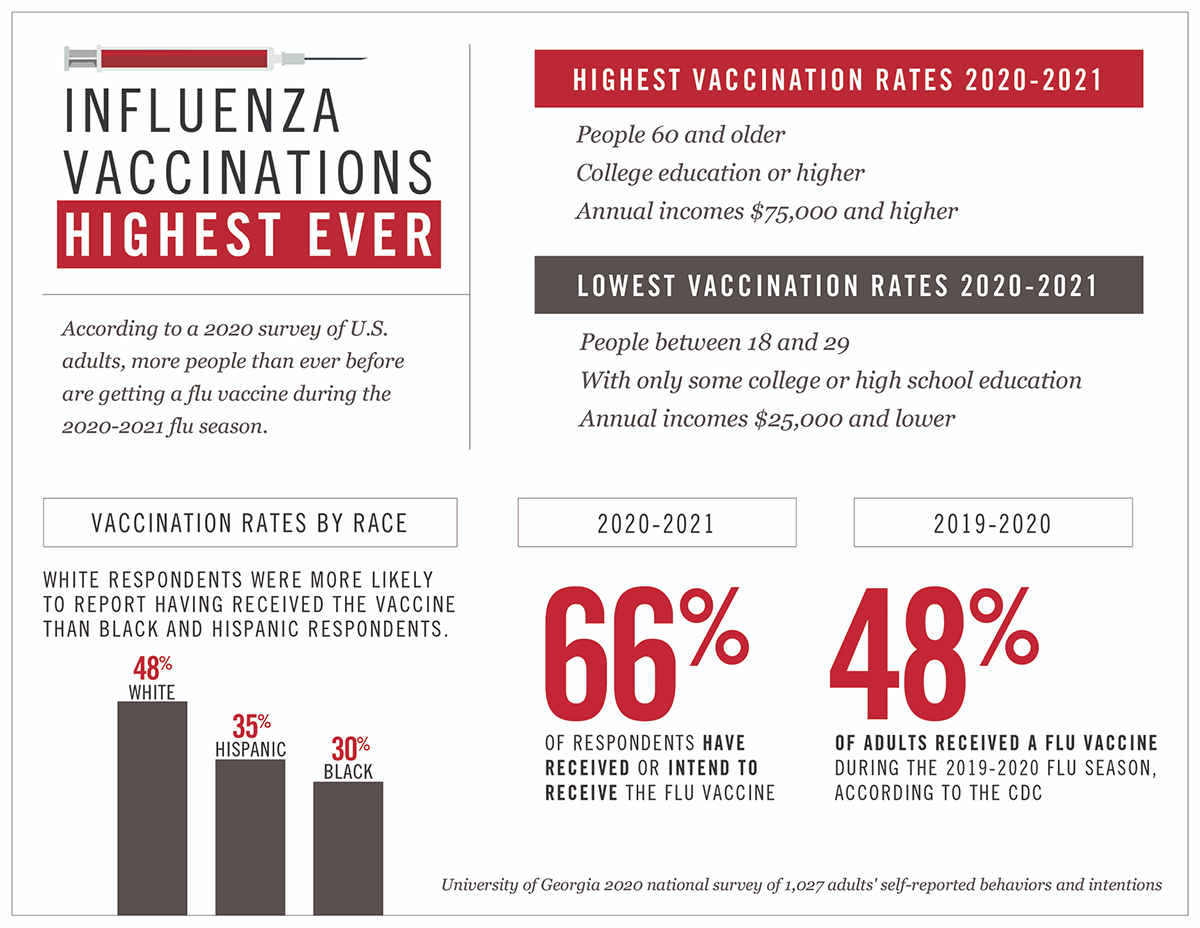A Shot of Prevention: Helping Your Campus Thrive During Flu Season

Around 57% of college students in a 2022 survey said they had received a flu vaccine within the last 12 months. Although flu shot promotion on college campuses has increased in recent years, there’s still progress to be made. Influenza outbreaks have proven to be a significant cause for concern among college students. Living in dorms and the high levels of social interaction on campuses make college students particularly susceptible to spreading the flu. However, with the right strategies, it’s possible to encourage flu shot compliance and reduce the impact of seasonal outbreaks on college campuses.
The Impact of Flu Shots on Student Health and Well-being
The impact of flu shots on student health and well-being cannot be overstated. Contracting the flu can have serious consequences for college students, leading to missed classes and exams, decreased academic performance, and even hospitalization in some cases. Some studies even suggest that the flu can exacerbate symptoms of anxiety and worsen mood. By getting vaccinated, students not only protect themselves but also contribute to the overall health and well-being of the campus community.
Furthermore, flu shots have been shown to reduce the severity of flu symptoms, even in cases where individuals still contract the virus. Receiving the flu vaccine can prevent students from missing out on their classes, and social events, and most importantly, prevent the spread to other students, faculty, and staff.
In addition to the health benefits, flu shots also have economic implications for some college students. Influenza outbreaks can lead to increased healthcare costs, missed work opportunities, and additional financial burdens for students. It’s essential for administrators to promote immunization adherence to help reduce these possible financial strains and ensure that students can focus on their education without unnecessary worries.

How to Encourage Flu Shot Compliance on Campus
One of the key challenges in promoting flu shots on campus is overcoming vaccine hesitancy among college students. Many students may have misconceptions about the flu shot or may be skeptical about its efficacy. However, research has consistently shown that the flu shot is safe and effective in preventing influenza. To address this issue, it’s important to provide accurate and evidence-based information about the flu shot to your students (plus faculty and staff).
One effective approach is to partner with student health organizations and health promotion teams to disseminate information about the flu shot. These trusted sources can help debunk common myths and answer any questions or concerns that students may have. Additionally, utilizing social media platforms and campus-wide email communications can help reach a broad audience and provide information about the importance of flu shot compliance.
Furthermore, making getting a flu shot as quick, convenient, and cost-effective as possible is key. Hosting flu shot clinics in highly visible, centrally-located locations can make it easier for students, faculty, and staff to get vaccinated. You can even experiment with offering incentives to those who get vaccinated – such as entering them into a raffle. Creating a positive and rewarding experience around flu shot compliance may motivate more students to get vaccinated.
It’s also crucial to address any financial barriers that may prevent students from getting vaccinated. Offering free or low-cost flu shots can help eliminate costs as a deterrent. Additionally, collaborating with local pharmacies or healthcare providers to offer discounted flu shots can make them more accessible.
Communication is Key
Another effective strategy to encourage flu shot compliance on campus is to host educational workshops and seminars on the importance of vaccination. These events can be led by medical professionals or health promotion specialists who can provide detailed information on the benefits of the flu shot and address any concerns raised by students. By engaging students in interactive discussions and providing them with the opportunity to ask questions, these workshops can help dispel myths and misconceptions surrounding the flu shot.
Along with workshops, campus-wide awareness campaigns can be organized to promote flu shot compliance. These campaigns can include informative posters, flyers, and banners strategically placed in high-traffic areas such as dormitories, dining halls, and classrooms.
Collaborating with student organizations can also be an effective way to encourage flu shot compliance. By partnering with groups that have a large and diverse membership base, such as fraternities, sororities, clubs, and sports teams, the message about the importance of flu shots can reach a wider audience. The message might even be heard more coming from their peers. These organizations can help organize on-campus vaccination drives and promote flu shot compliance among their members through peer-to-peer communication.
Lastly, it’s important to continuously evaluate the effectiveness of flu shot promotion efforts on campus. Collecting data and creating reports that track vaccination rates, plus conducting surveys to gauge student attitudes and beliefs about the flu shot, can provide valuable insights for improving future campaigns. By regularly assessing the impact of these initiatives, universities can refine their strategies and ensure that they’re effectively encouraging compliance on campus.
Key Takeaways
Promoting flu shots on college campuses is vital for preventing seasonal outbreaks among college students. By implementing strategies to encourage flu shot compliance, college administrators can help protect the health and well-being of their student population. It’s crucial to educate students about the benefits of vaccination, prioritize the availability of on-campus flu shot clinics, and tap into various communication channels and student groups to reach a broad audience. By implementing these strategies, campuses can create a culture of compliance and reduce the impact of influenza outbreaks on their staff, faculty, and students.
















